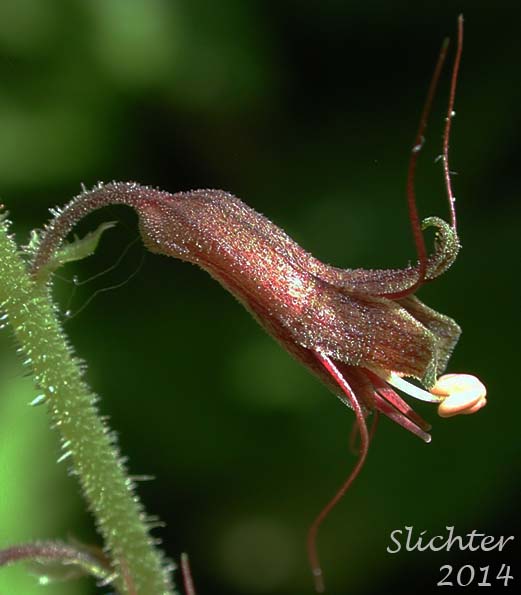

The piggy-back plant is an attractive perennial with erect, hairy stems arising to 80 cm in height from a basal cluster of hairy leaves atop a rhizome. The basal leaves are simple with palmate venation with roughly a heart shape. The margins are shallowly 5-7 lobed and coarsely toothed, often with smaller teeth atop the larger ones. The leaves are born on 7-20 cm long petioles. The stems contain 3-5 leaves of reduced size. Importantly, the stem leaf blades are about equal in length and width, measured lengthwise from the tip of the leaf to the attachment of the petiole.
The inflorescence is an open raceme of brownish striped, tube-shaped flowers. The flowers may be up to 6 mm long. The tube-shaped calyx or sepals are green with purple or brown stripes. The petals are chocolate brown and thread-like. They are up to twice as long as the calyx lobes.
This plant gets its names as a result of their ability to reproduce vegetatively. Buds develop at the base of the leaf blades. The buds may form small plants, which if the leaf touches the ground, afford the plantlets an opportunity to root and become larger plants.
The genus name refers to Dr. William Tolmie who was a physician for the Hudson's Bay Company at Ft. Vancouver in 1832. The species name refers to Archibald Menzies who was the first European to botanize the Pacific Northwest.
The piggy-back plant is found in moist, dark woods. They like rich soil with an abundance of humus.
The piggyback plant may be found from southern Alaska south along the coast (and usually no further east than the Cascade crest) to near US Highway 20 in Oregon.